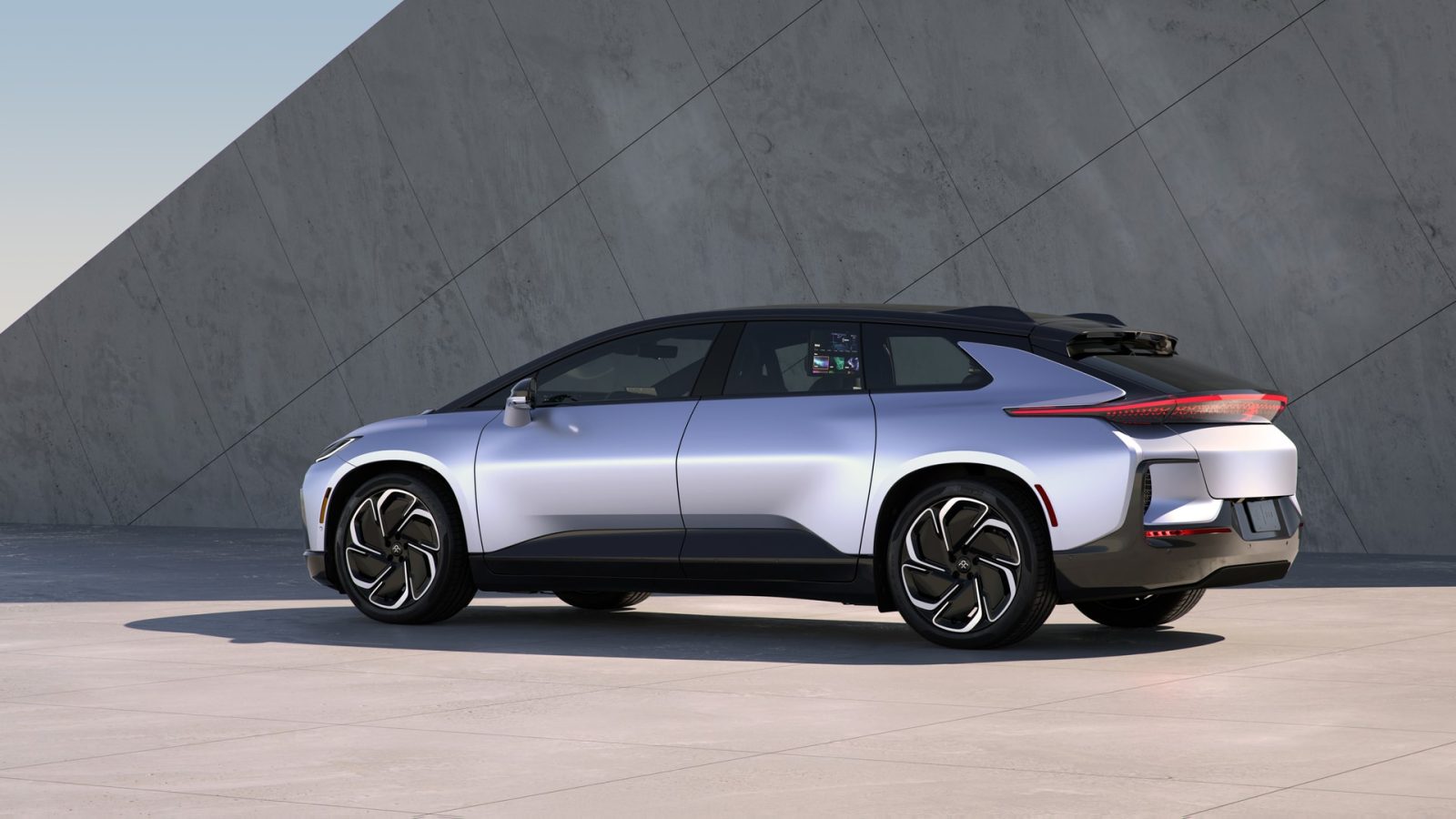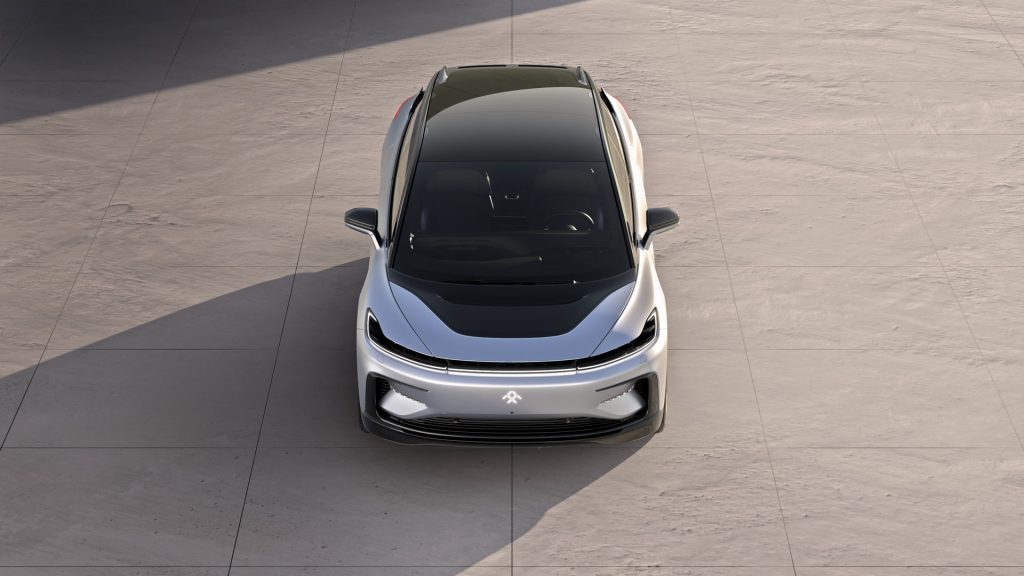Faraday delivers its $300K luxury EV, but its stock is plummeting


California EV startup Faraday Future, which has just relaunched delivery of its luxury $309,000 electric car, is at risk of being delisted from NASDAQ due to plummeting share price.
Faraday, based in Los Angeles, was given a warning from NASDAQ for not lifting its minimum price of $1 per share for 30 consecutive trading days from November 9 to December 27, 2023, Reuters reports. Faraday now has 180 days, or until June 24, to boost its share price to reach the minimum $1 per share for at least 10 consecutive trading days. If it doesn’t reach this goal, NASDAQ will give it another chance before potentially delisting the company.
Last August, the company split its stock to boost its share price, but it didn’t make a big impact. Two months prior it received a $90 million investment from ATW Partners and Senyun International.

Currently, the company is delivering its new FF 91, its only model, which started on May 31 but was paused a couple of days later. For those with deep pockets, the entry-level Lucid Air Sapphire variant costs $249,000, while the “Futurist Alliance” variant costs $309,000. Still, it does have some ambitious features: a top speed of 155 mph, 0 to 60 mph in under 2.3 seconds, and a range of 382 miles on a single charge (see City Dwellers’s review here).
City Dwellers’s Take
Despite the fresh news this week that the company had delivered its tenth EV to a customer in California, an actual Faraday executive, the company’s stock dipped another 10% yesterday. Tuesday at the end of trading hours, the stock dropped another 15%.
Founded by Chinese billionaire Jia Yueting back in 2014, the company has faced a series of setbacks and production delays involving investment shortages and supply chain problems. And the company has made some questionable choices, like bringing on R&B singer Chris Brown – who comes with a slew of legal baggage – as “Developer Co-Creation Officer.” While Faraday planned to launch its EV last year, that plan stalled, and it had just $8.6 million back on September 30, according to Reuters.
Still, it is delivering a few cars now, so that is positive news, but it’s likely investors are tempted by other EV players out there.
FTC: We use income earning auto affiliate links. More.